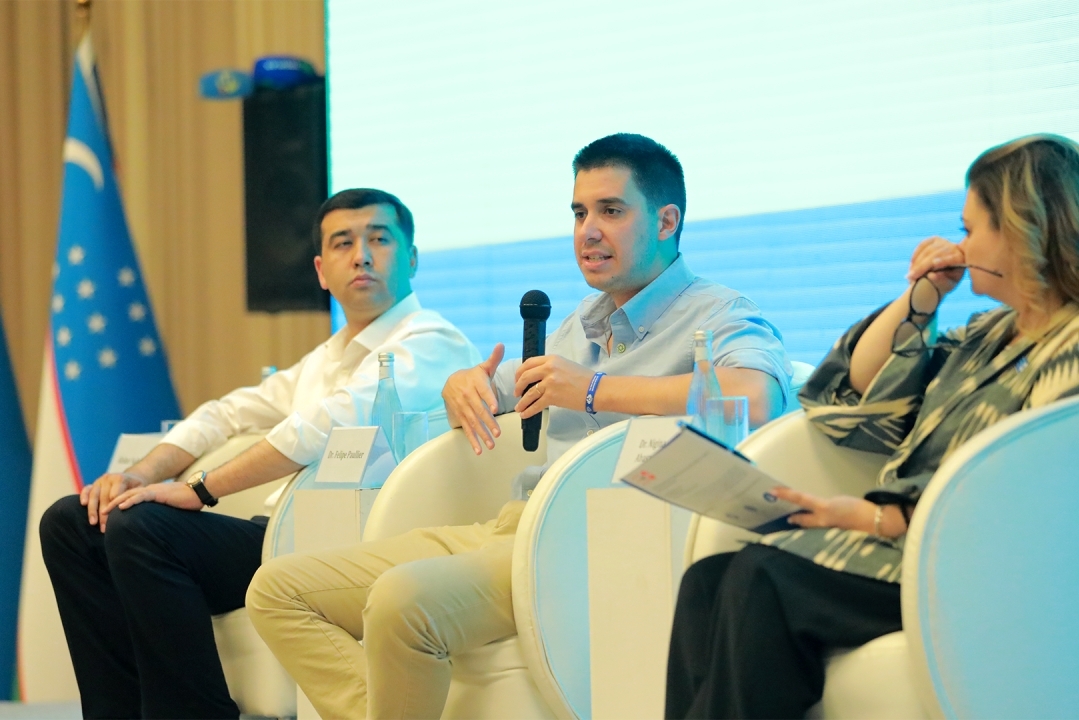
The Festival spotlighted youth-led climate action and sustainable development, aligning with Uzbekistan’s designation of 2025 as the Year of Environmental Protection and Green Economy. For Uzbekistan—a double-landlocked country at the center of Central Asia—climate action is particularly urgent. The region faces mounting environmental challenges, from desertification and water scarcity to the long-standing ecological disaster of the Aral Sea. While these issues affect the entire population, young people are disproportionately impacted.
Bringing together high-level representatives, international partners, and young changemakers from over 30 countries, the Festival placed youth at the forefront of efforts to address these challenges—promoting climate justice, driving innovation, and accelerating sustainable development.
Speaking at the opening ceremony, ASG Paullier praised young people for their leadership and determination, while stressing that “no matter how powerful youth action is, young people alone cannot carry the burden of solving today’s crises. That responsibility lies, first and foremost, with world leaders.” Nevertheless, he emphasized the need for intergenerational partnership, adding:“We need young people to be full-fledged partners and co-creators—participating meaningfully in policymaking at all levels, and having a real say in shaping the decisions that affect their lives, livelihoods, and futures.”
In Uzbekistan, where nearly 60% of the population is under the age of 30, investing in young people is a national priority. The country has already established concrete mechanisms for youth engagement in policymaking—from national institutions to mahallas, or community-level councils.
One key example is the Youth Parliament, a consultative body to both chambers of the Uzbek Parliament—the Senate and the Legislative Chamber—comprising youth from all 14 regions of the country. Members play an active role in overseeing the implementation of government policies and Presidential decrees, while also contributing to legislative processes.
This focus on working with and for young people is also reflected in the work of the United Nations in the country. In conversations with members of the UN Country Team, colleagues highlighted that Uzbekistan is rapidly developing, while at the same time experiencing a population growth of around 1 million a year. With young people making up the largest share of its population, Uzbekistan is uniquely positioned to harness this demographic dividend to drive inclusive economic growth and social prosperity. Ensuring no one is left behind in this process must be a key priority, as highlighted by Ms. Sabine Machl, UN Resident Coordinator in Uzbekistan:“Everyone should feel the benefits of development.”
Uzbekistan’s experience shows that when young people's needs and aspirations are prioritized, societies can thrive. Its example offers valuable insights for advancing youth agendas—across Central Asia and around the world. The United Nations remains committed to empowering young people and working with the Government to help ensure this potential is fully realized.